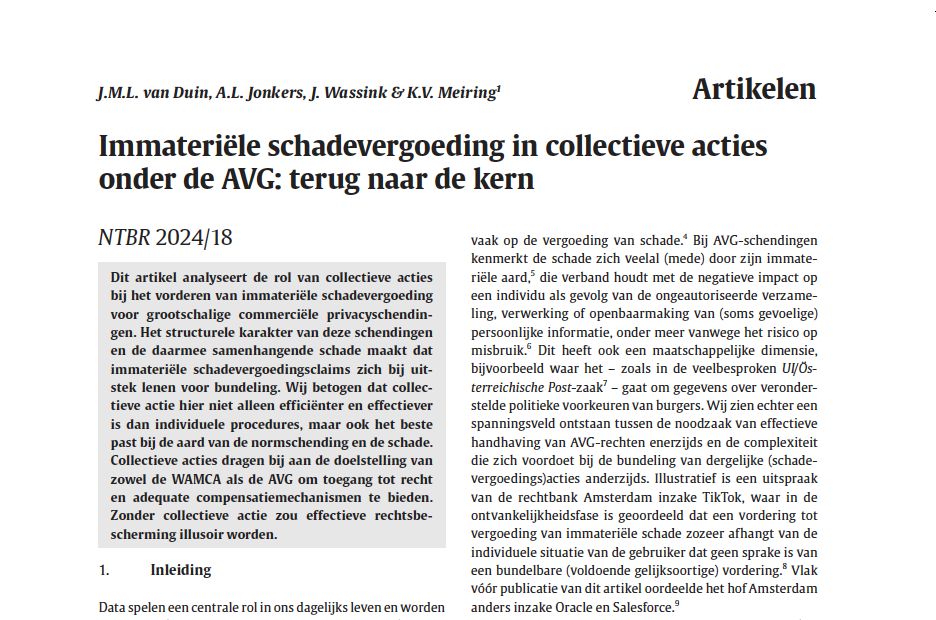Collective Actions and GDPR: Exploring Effective Remedies in Civil Justice
Anna van Duin, a researcher and lecturer specializing in civil procedure at the University of Amsterdam and a member of the Digital Legal Lab, has recently published a thought-provoking article in the Nederlands Tijdschrift voor Burgerlijk Recht (NTBR). Known for her expertise in access to justice and effective remedies for private parties, her research focuses on the increasingly important intersection of technology and civil justice.
Her latest work, co-authored with Aart Jonkers, Jan Wassink, and Kirsten Meiring, delves into the role of collective actions in claiming immaterial damages under the General Data Protection Regulation (GDPR).
The article, titled “Immaterial Damages in Collective Actions Under the GDPR: Back to the Core”, examines the efficiency and effectiveness of class actions compared to individual proceedings, particularly in the context of large-scale commercial privacy violations. The authors argue that collective actions offer a more efficient and effective approach compared to individual proceedings, aligning better with the nature of the norm violations and the resulting damages. They emphasize that this approach aligns with the goals of both the Dutch Act on Collective Damages (WAMCA) and the GDPR, ensuring better access to justice and adequate compensation mechanisms.
The paper is available in Dutch here.
